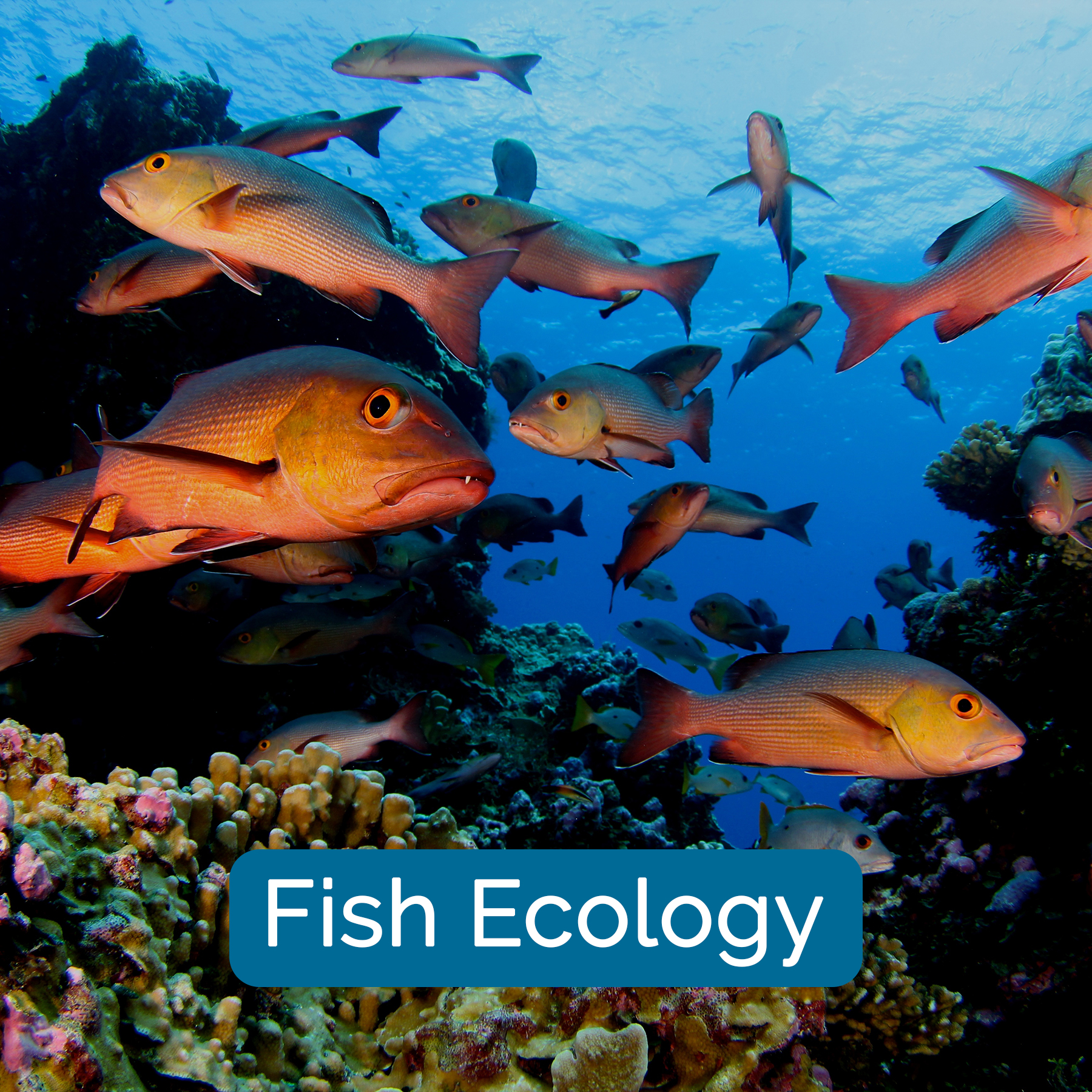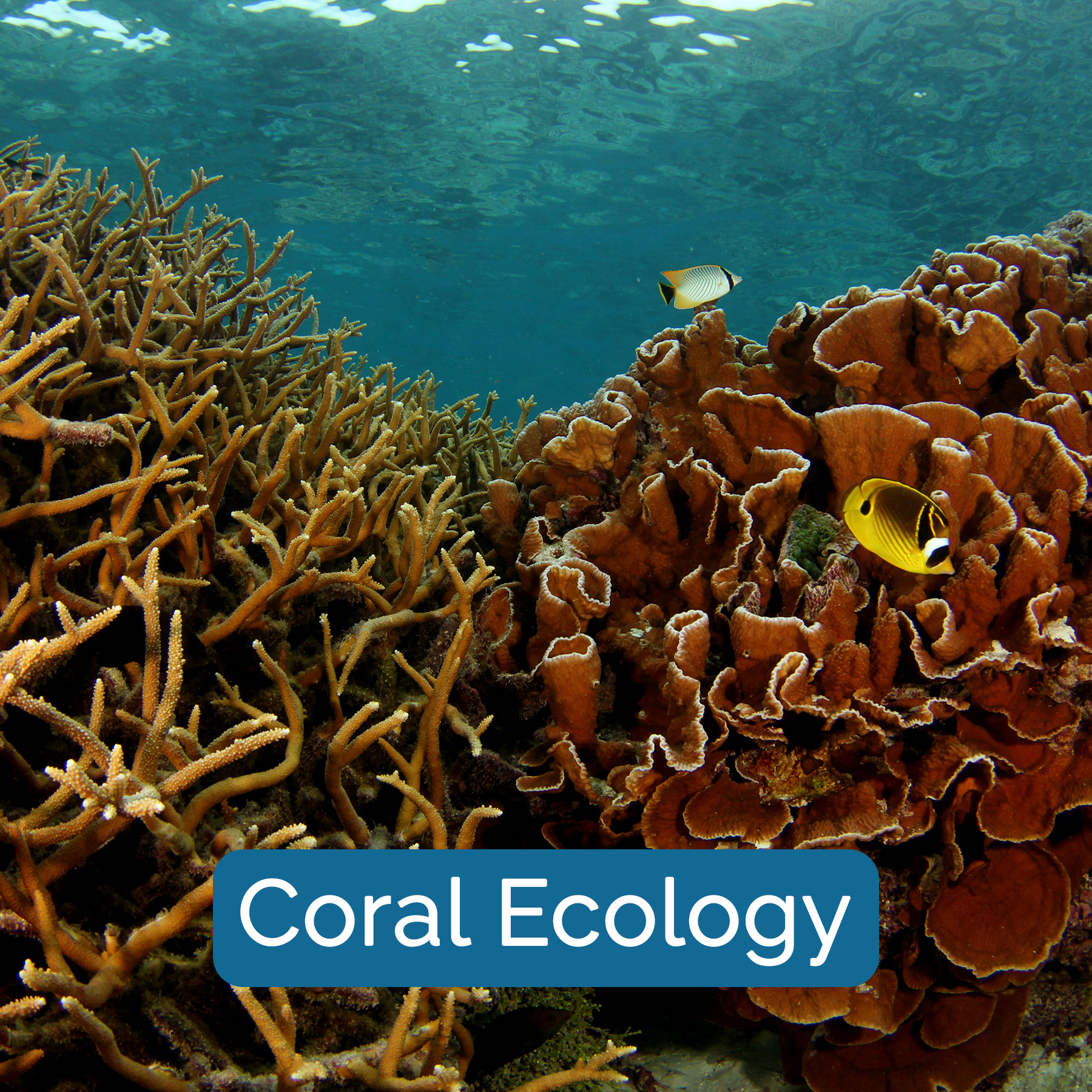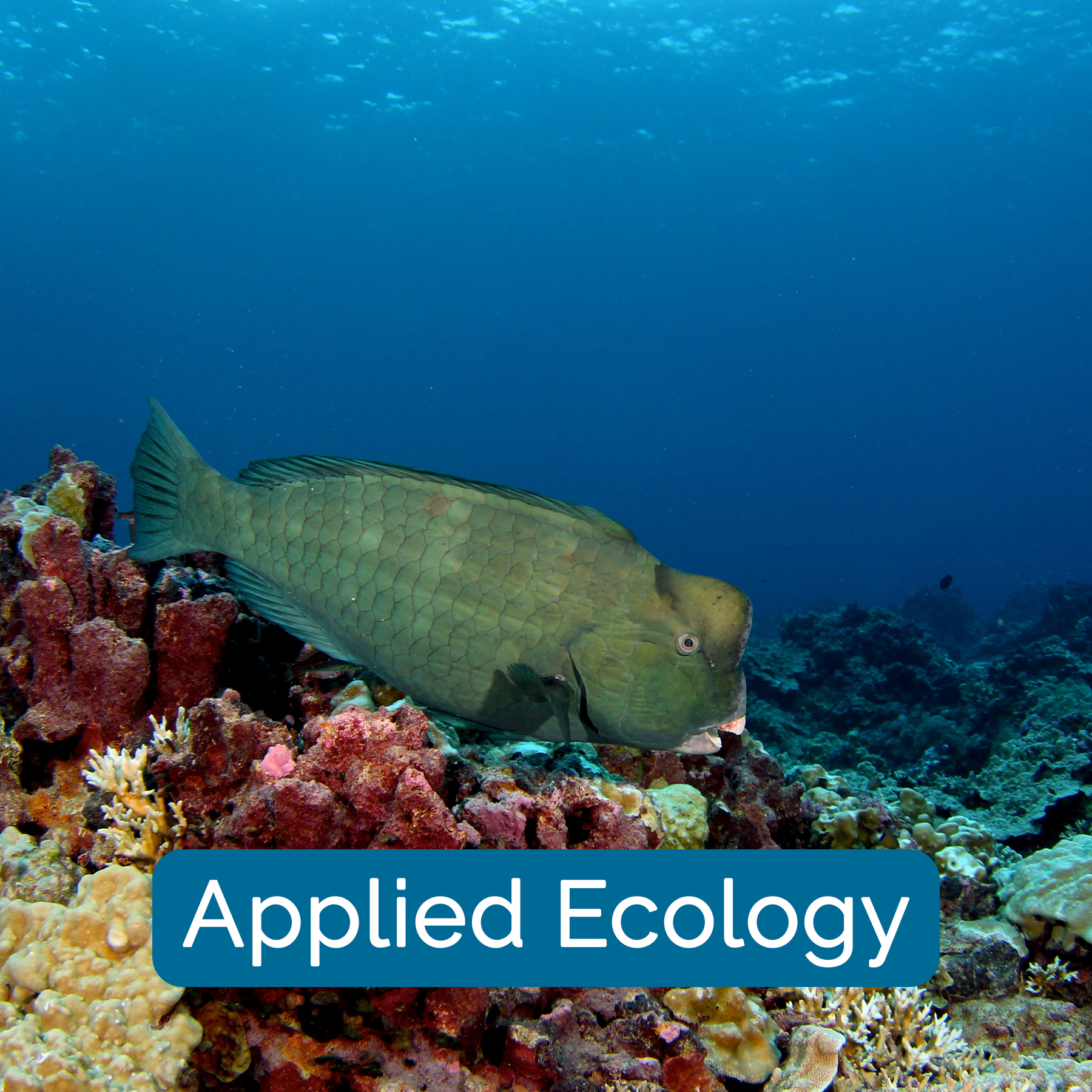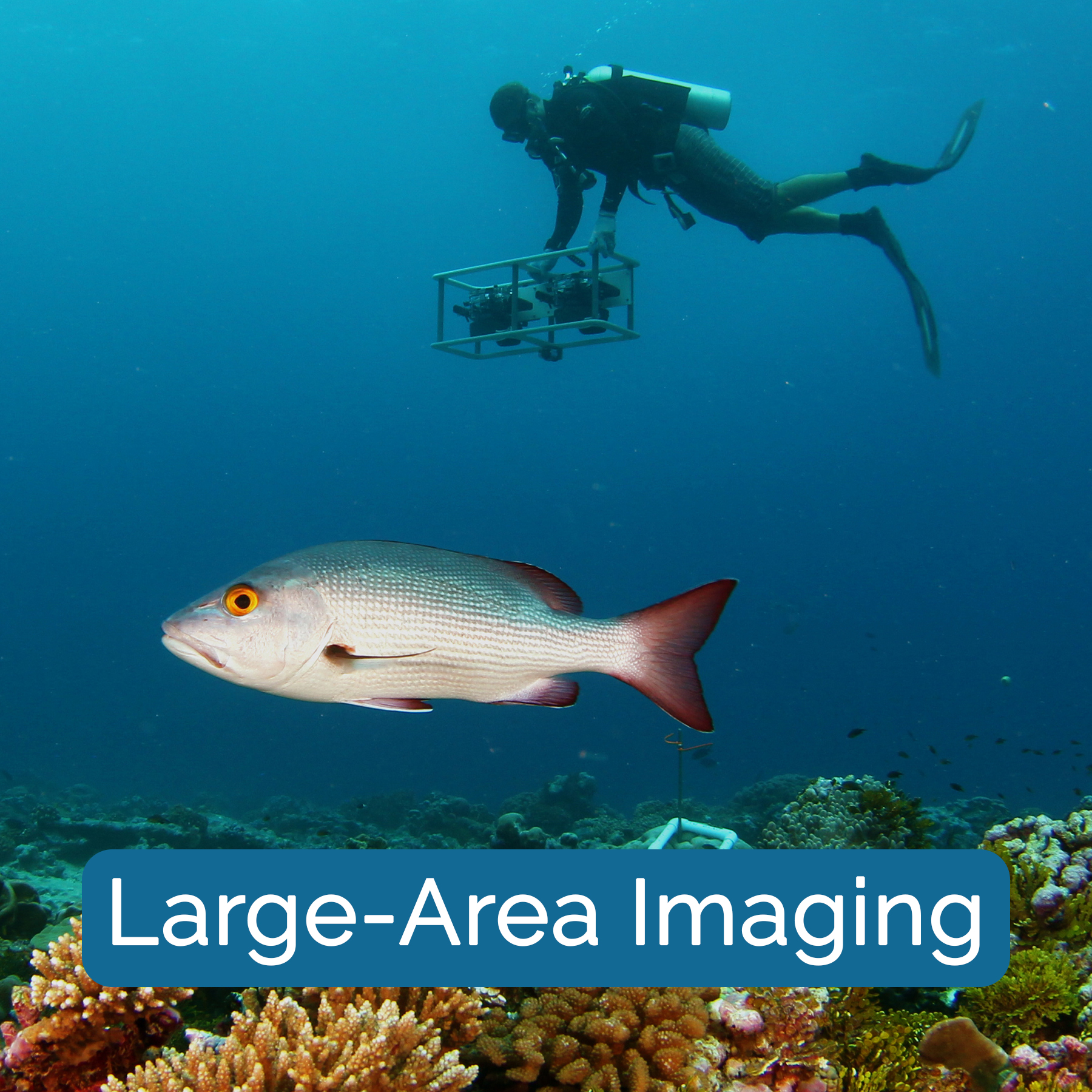research overview
Marine ecosystems offer unique opportunities to study basic principles of ecology, complementing insights gained from terrestrial systems. Our oceans are home to almost all known phyla of life and span an incredible range of habitats and environmental conditions. Despite the unique opportunities that the ocean provides to learn about how organisms survive and perish, fight and coexist, and face an ever-changing environment, the study of marine ecology holds huge potential to better understand the workings of the biosphere around us.
Our team studies community ecology, with particular emphasis and expertise working in coral reef ecosystems. Coral reefs, due to their high diversity and the relative ease for observational science, facilitate detailed investigation of population dynamics, species interactions, and successional ecology. Further, the high diversity of coral reef types, including elements of oceanographic, geological, and anthropogenic context, provides a fascinating and invaluable natural laboratory to address fundamental and applied ecological questions of ecology in a changing world.
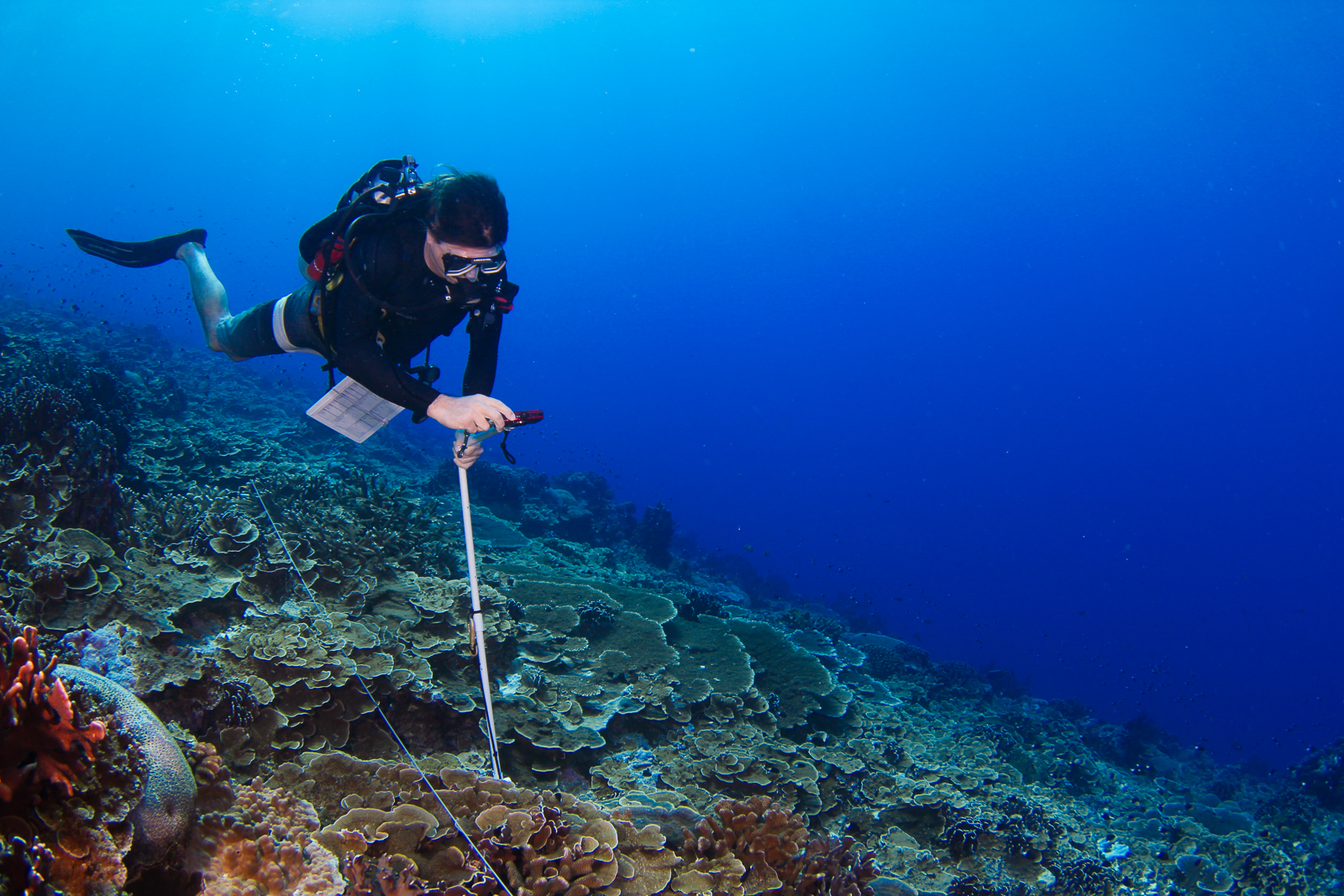
SCIENCE IN ACTION
Academics have a responsibility to conduct robust and agnostic inquiry, and they also have a responsibility to make the findings available to audiences in need of the insights. We believe that ecologists are essential members of the resource management community, offering advice regarding the likely consequences of current or proposed management strategies. Through collaboration with social scientists and through active outreach efforts, we strive to communicate our results to a broad cross-section of our community.
100 ISLAND CHALLENGE
Coral reefs are highly complex ecosystems spanning the world’s tropical seas. Each coral reef ecosystem possesses unique biodiversity and is exposed to a range of oceanographic conditions, nearshore geology, and anthropogenic influences. Therefore, a global perspective is required to understand the complexities and inner workings of coral reefs. Our team recognized an exceptional opportunity for scientific inquiry and set out on a global campaign named the 100 Island Challenge to gain a holistic understanding of the current state and future trajectory of the world’s coral reefs.
The 100 Island Challenge was designed to provide a regional scale perspective of coral reefs, investigating spatially explicit patterns in community organization through time. Our team works in collaboration with colleagues from 21 countries across the Pacific, Caribbean, and Indian Oceans to assess the health and condition of critical components of coral reef ecosystems including fish, corals, algae, and nearshore oceanography. Importantly, our team incorporates large-area imagery surveys across multiple time points to provide spatially explicit and archivable records of reef benthic structure through time. The large-area imagery collected across all of the 100 Island Challenge sites represents the most extensive underwater image-based data catalog ever compiled for coral reefs and contributes to a global database describing a representative cross-section of coral reefs from more than 100 islands. Together, these data serve as a foundation of a stream of new scientific insights and reports produced by our team, as well as supporting the conservation and management efforts of partners globally.

